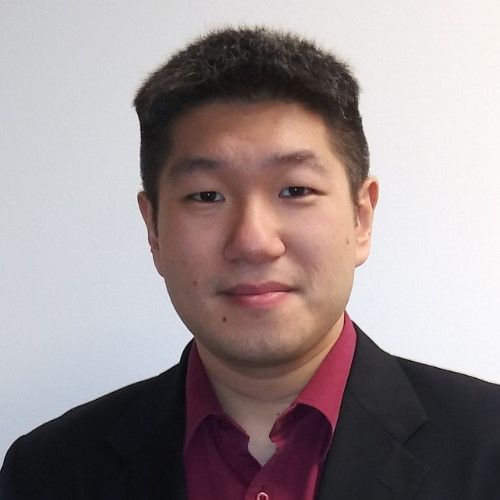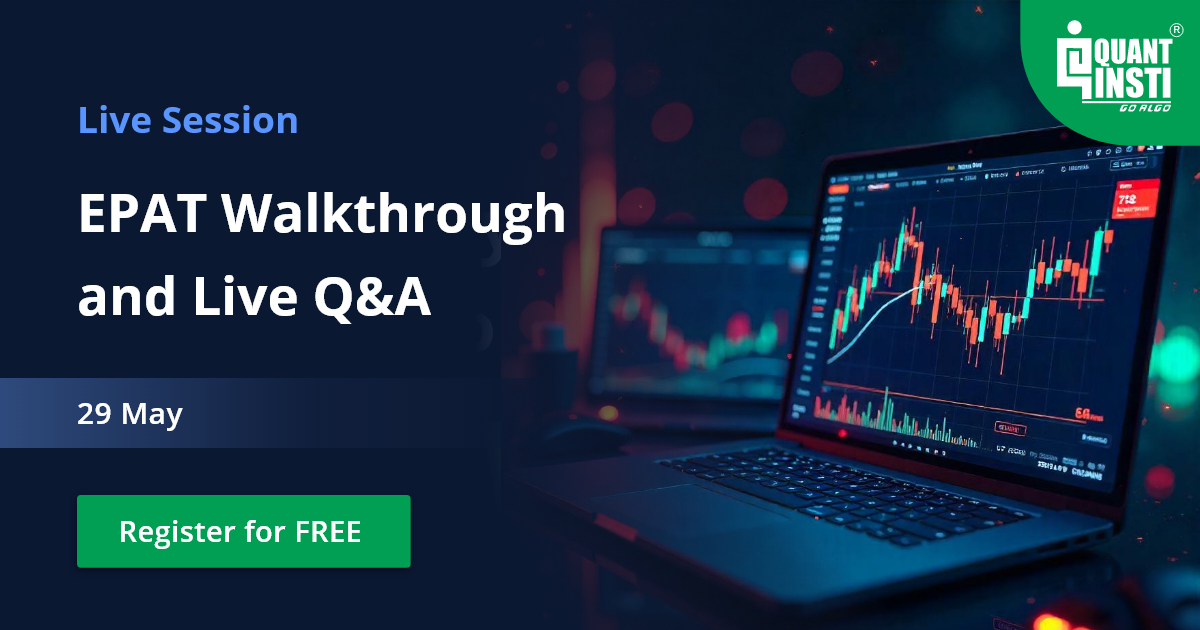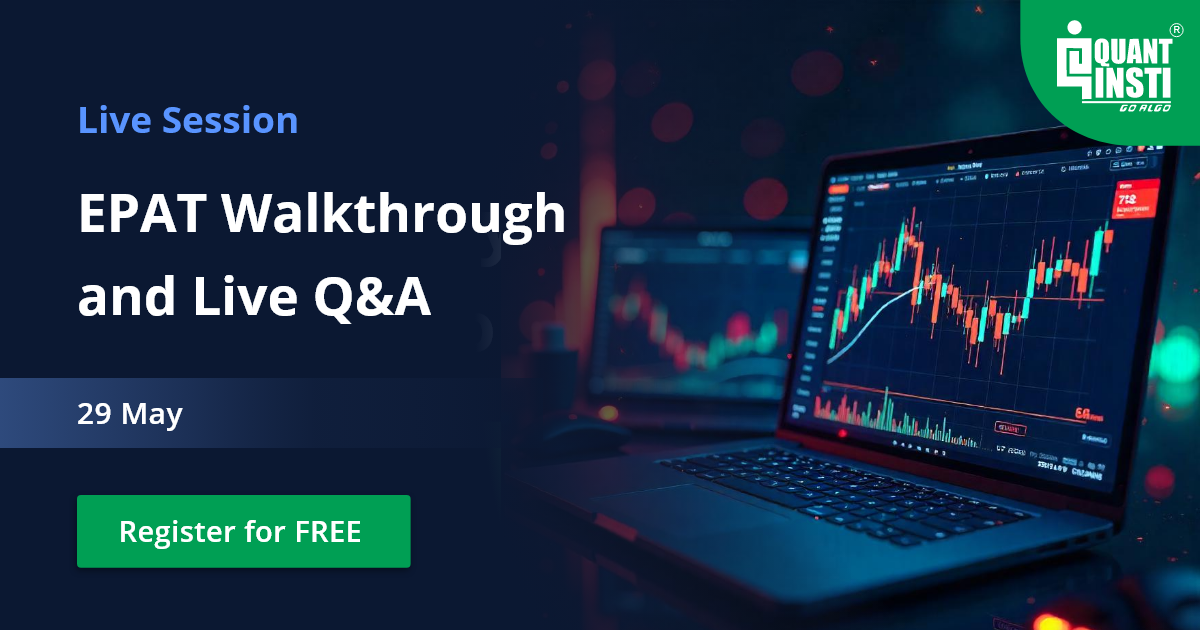
Trading is all about tapping into the right opportunity at a precise moment. Keep yourself open to the idea of opportunity, and you’ll find your true calling in that. But with the change in the way trading happens, Traders have had to adapt and grow their skill sets.
While some people seek knowledge from books, some people also incorporate knowledge from other’s experience. You find some gems here and there, use them in your life. Sooner or later you’re going to get what to desire in life.
If you believe in this, you might be able to relate to Lester on a personal level and also witness his magnificent study adventures. We interviewed Lester Leong and here’s how the discussion went.
Here’s our conversation with Lester:
Hi Lester! Tell us about yourself.
I’m Lester Leong, I’m a data scientist, and an EPAT Alumni. Career-wise, I do Data Science in Finance. Education-wise, I’m quite curious and like to learn a lot. I’m just like any ordinary human being, just trying to figure things out utilising all the resources that we have at our disposal.
You’re working in one of the world’s largest banks. Could you share your present role?
Yes, I’m the Vice President of Data Science & Strategic Planning at Wells Fargo - and yes, it is also the fourth largest bank in the US by Market Capitalization. I work on the finance side with a mix of public companies and private companies, mostly middle-market banking, so they must have revenues of $100 million or greater.
Most of the companies I deal with in my role involve credit default or optimizing efficiency within the company. Another model I used that was covered in QuantInsti was Time Series analysis, so obviously, predicting the future with financial data definitely helps in the financial data analysis.
Did you always aspire to be in the domain of Algo Trading?
Well, it’s kind of interesting. I found out about trading by reading books and by following Michael Covel - he got me into it, but I was only trading manually, and I knew that big CTA firms did it in an automated fashion and that also was one of the key drivers that were helpful in me learning about Quant things. And obviously, Quantitative Trading was kind of cool so I wanted to be one of those things.
In my last year as an undergraduate, I was a Philosophy Major. But I read the book ‘Rich Dad Poor Dad’ and it introduced me to the world of finance, made think about financials differently. I always thought that finance was only about doing your taxes, but it is so much more. As a result of this new-found knowledge, I got my Masters in Finance. Which taught me how to understand how the financial markets work.
When I first learned about Quants - these were like former PhDs from Physics and Computer Science - basically “The Rocket Scientists that went to Wall Street”. At first, I thought that Algo Trading is not something that I could pursue due to my background. But I met certain people in my career that changed all of that. I came across QuantInsti that kind of bridged the gap for me to steadily and slowly understand what Quant is and as a result, I’m doing basically Quant work now.
If you consider Data Science to be a combination of Data Science and Finance, for someone to be a Quantitative Analyst then yeah, I have actually achieved a goal that I thought wasn’t really possible to accomplish without the help of QuantInsti.
At one point in your career you were a consultant for some fortune 500 companies - How did this happen?
Getting into business, going from BA to the Masters in Finance to MBA, it really was a function of me trying to break into finance. Since it would be difficult for me to get into Finance, it was easier to take up a consulting role.
First I had initially signed up to get an MBA in Finance, but my first teacher was an accountant and what she taught me was kind of fun, and I realized that having an MBA in Finance it was normally like 6 more months to get a Masters in Accounting. So, I said, “You know what? Let’s just pack it on.”
Warren Buffet has said that you’ve got to know accounting pretty well to understand financial statements. So it felt like a no-brainer at that time, and then getting that background led to being in contact with more recruiters and also other contract jobs to do consulting work.
For me it was fun because I figured being on the contract, you could get a short one, then work for a different company and then basically get to try out different places that you’d like to work at. But at the end, I got into Wells Fargo and then climbed up there to where I am right now.
You have countless certifications, a masters and a doctorate degree. According to you, what is the importance of knowledge in Trading?
Presently I’m pursuing my Master’s degree from Harvard. When I was a consultant, I wanted to climb up in my career. It was my business coach who guided me to pursue my interest in analytics and motivated me to do what I like doing. She helped me realize my potential in achieving my goal of moving up higher rather than just being an analyst or a consultant. That I should do something that would probably increase my odds like getting a certification or going to a prestigious school. And since I already had an MBA, I needed to do something that was not an MBA. Thus, I went for Harvard.
I personally don’t think that going for these degrees for Algo Trading is necessary, but for me, it was a function of me trying to better my career. It also depended on my peers that I have been surrounded by who are savvy about reading and books. So I kind of got hooked into it by association.
Some courses out there are too rough, have a really high price tag, and don’t explain coding as you guys do. As I said, I like to learn a lot and that’s why I picked up QuantInsti. The beautiful thing about QuantInsti is that out of all the options that we have out there, not too many choices that we have that is specifically tailored for Algo Trading. It is cost-efficient. What stands out for it is the price point, the education you get and for the practical application that you can actually do. It’s the best choice!
What challenges did you confront while learning Algorithmic Trading?
I think the really critical point or I can say the biggest risk in my career for me was when I switched to finance from my bachelors of philosophy. That I could actually work in business and finance was to break-in with showing that I was a business student.
But to take out abstractly so that it could help out other people, it really comes down to whatever problem you’re really trying to isolate, try to simplify it and bring it down to its core issue.
So it really comes down to:
#1 You figure out what are your conditions to actually succeed.
#2 Get as much as you can, to get in that line and execute.
Once you execute, you’re gonna get a failure of course, but that failure is a chance for you to iterate and build upon greater success.
Before joining EPAT, I didn’t really know so much about how to code my own strategy and systems. QuantInsti actually shows it with people that have actually done it before. Then obviously, there have been people like Dr. Ernie Chan which also makes it more intriguing. Definitely. But yeah, the biggest thing was the course project. It not only ties everything together but it is definitely a good motivating force that I have developed something.
To sum that off, to keep it short, in Quant Trading overall the most important thing to start into the practical real-world cases which QuantInsti had. And diving into the course project actually was a springboard for me to develop my own profitable system that I actually want to use for myself.
You’re going to be right most of the time and when you’re not, you’ll learn from it and then you’ll re-adjust and execute again and so that’s what makes the role satisfactory.
What is your take on the following with respect to Trading?
Data Science: Everything is changing with Data Science. From what I’ve noticed, most of the companies are starting to get into it now. Very few are actually at the forefront which are the big tech companies.
Analytics: Obviously, more automation are improving Data Analytics relatively fast. So, I guess there are bigger things coming down the pipeline.
Automation: I guess for the business itself, it surely presents the right opportunity for anyone to figure it out. The way I think about it in terms of like a consultant you approach the people’s need, then you leverage how Machine Learning and automation can actually help them out.
Innovations: Innovation definitely gives a creative edge, but I haven’t made a magical formula to produce innovations on a consistent basis yet.
Do you wish to keep learning more?
Oh yeah! Definitely. In the financial markets, most profitable strategy that you know don’t really last that long, so you have to invent a strategy to stay on top. Basically, everyone is converging towards profitable trading strategies, which forces the iterative process. So it can never end positively.
I think trading a fun and rewarding experience unlike academy alone where you build something, write a paper and move on to the next thing. In the financial markets, you get rewarded with profits and you can do more things with that.
You studied both Python and R? What is your take on that?
I came about learning Python and R when they were apparently new, and apparently fighting with each other, for world domination I guess. In the beginning, when I started off, R was more popular being used in academics and everything, and then slowly and steadily Python came in. Python had a cleaner syntax so then it won over a period of time. And eventually, today it’s a lot of Python going around now.
Is there anyone you’d like to credit for your success today?
Besides the standard line of friends and family, it was also people that I admired, from whom I picked up some good qualities and incorporated them in myself. I like how Warren Buffet trades - a very humble guy, very straightforward, and I like how he carries his finances. I also like Jim Simons founder of Renaissance Technologies and what admires me is later in his career, in his 60s or something, he started his own Quant Hedge fund and became a billionaire. So, these are the little components that I select from different people and I just try to incorporate that in my life.
Thank you for taking out the time, Lester. It has been great conversing over various topics with you. We wish you lots of continued success and more learning in your career. All the best!
Learning is the base that gets you going. It builds on your skills and helps you accomplish what you aspire and work hard to achieve. Upgrading yourself is what matters. The Executive Programme in Algorithmic Trading (EPAT) ensures that you are equipped with the requisite knowledge, and enhances your Algorithmic Trading skills. EPAT is a comprehensive course covering topics ranging from Statistics & Econometrics to Financial Computing & Technology including Machine Learning and more. Start your quest to upgrade your knowledge of Algorithmic Trading with EPAT. Check it out here.
Disclaimer: In order to assist individuals who are considering pursuing a career in algorithmic and quantitative trading, this case study has been collated based on the personal experiences of learners from QuantInsti®. Case studies are for illustrative purposes only and are not meant to be used for investment purposes. The results achieved post completion of any QuantInsti programme may not be uniform for all individuals.


